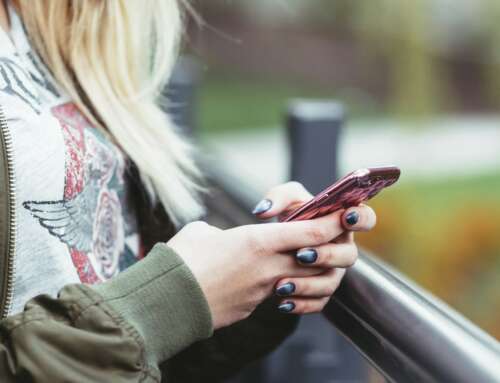Australians are increasingly active online, taking advantage of the economic, social and cultural benefits that the Internet offers. Australia has a healthy and promising digital economy which is set to provide further growth and opportunity1.
Based on our experience, we believe that ‘over the top’ digital service providers are motivated to work towards a safe and secure environment for their users. This is fundamental to obtaining and maintaining users’ trust. Otherwise, users will switch to a different service. This is most true in the highly competitive world of the web, where an alternative is just a click away.
Google considers safety in the design of each and every one of its services. We work to:
- Educate people about how to stay safe and secure online and about our privacy practices;
- Empower people with tools to help them manage their online experience; and
- Cooperate with law enforcement, industry and community organisations.
Educate people about how to stay safe and secure online and about our privacy practices
We provide educational resources, such as the Google Safety Centre (https://www.google.com.au/intl/en/safetycenter/families/start/) and the YouTube Safety Centre (https://www.youtube.com/yt/policyandsafety/safety.html) to offer advice on how to use Google products in a smart, safe and responsible way.
In addition, we provide our users with tips and articles for managing their experience while using Google products through individual product Help Centres such as the Google+ Help Safety Centre. We also encourage our users to tell us about illegal content or abuse they encounter on the web or in our products through our Help Centres and provide contextual flagging and reporting tools alongside user generated content to assist in bringing this content to our attention.
We also support educational efforts by third parties to increase awareness about digital citizenship. In Australia we support non-profit organisations including The National Association for Prevention of Child Abuse and Neglect (NAPCAN), Childwise, ReachOut, The Alannah and Madeline Foundation, Kids Helpline, the Carly Ryan Foundation and Bravehearts, to provide online public service announcements that promote access to resources about safety and other educational efforts. We actively support their efforts to raise awareness and educate young people about digital citizenship.
This includes our support for The Alannah and Madeline Foundation’s eSmart Schools Program and the recently launched Digital Licence. In fact, Google awarded the Foundation with a $1.2 million grant in 2015 to ensure that every year 6 student could obtain a Digital Licence for free.
Empower people with tools to help them manage their online experience
Google provides the Google SafeSearch tool for users to filter unwanted content. We understand that many people don’t want to have adult content included in their search results, especially when children are using the computer. Google has developed its own SafeSearch filter, which uses advanced technology to block pornographic and explicit content from search results. Users can customise their SafeSearch settings by searching for ‘Google SafeSearch’ and following the prompts.
We also provide Safety Mode for YouTube which removes content which has been classified as appropriate for adult consumption from YouTube search results. We have robust and efficient reporting and sharing tools alongside every video on YouTube which facilitate the immediate escalation of content for review and granular controls for enabling / disabling sharing and commenting permissions.
Cooperate with law enforcement, industry and community organisations
Google is committed to cooperation to further digital citizenship. We cooperate with law enforcement (as well as government more broadly, for example the Office of the Children’s eSafety Commissioner), industry, community organisations and our users to promote good digital citizenship and manage safety, security and privacy online. Google is an active participant in the Government’s Online Cyber Safety Working Group.
In addition to the charitable partnerships identified above, we also provide funding and in-kind support to the Young and Well Cooperative Research Centre who contribute important research in the area of developing respectful relationships online and building a strong resilience amongst young people in their interactions. We also collaborate with other industry leaders, like Microsoft, Twitter, Facebook and Yahoo, to keep devising technical solutions to stay one step ahead of this issue.
In terms of cooperation with law enforcement, Google has a legal team devoted to interactions with law enforcement 24 hours a day, 7 days a week. We respond to thousands of law enforcement requests for assistance, and hundreds of subpoenas, each year.
In addition we use databases from designated organisations listing websites suspected of containing child sexual abuse images in order to remove illegal child pornography URLs from our search results. When we discover child pornography or are made aware of it, we respond quickly to remove and report it to the US National Centre for Missing and Exploited Children (NCMEC) who in turn work with the relevant local law enforcement authorities to investigate these offences.
We have also created a unique warning page that is produced in response to searches for child exploitation content that alerts the searcher that this content is illegal and which encourages them to report abuse to the AFP and seek counselling from Bravehearts.
At a global level, Google is working with coalitions of financial and technology companies and NCMEC to develop new solutions aimed at eradicating child pornography on the Internet.
– Samantha Yorke
______________________________________________________________
Google resources / safeguards:
- YouTube Safety Centre – provides safety tips, including advice on keeping personal videos private, cyberbullying, spam and phishing; as well as information about how to protect identity and appropriately manage interactions with other users, tips on how to be a responsible digital citizen and how to use the community flagging system.
- Google Safe Search (how to turn on/off).
- Android Restricted Profile instructions.
- Chrome parental controls (setting up and managing supervised users of Chrome browser).
- Google+ teen settings and safety notifications
- Google Family Safety Centre contains general advice and information for families and direct links to the above tools and resources.







Leave A Comment